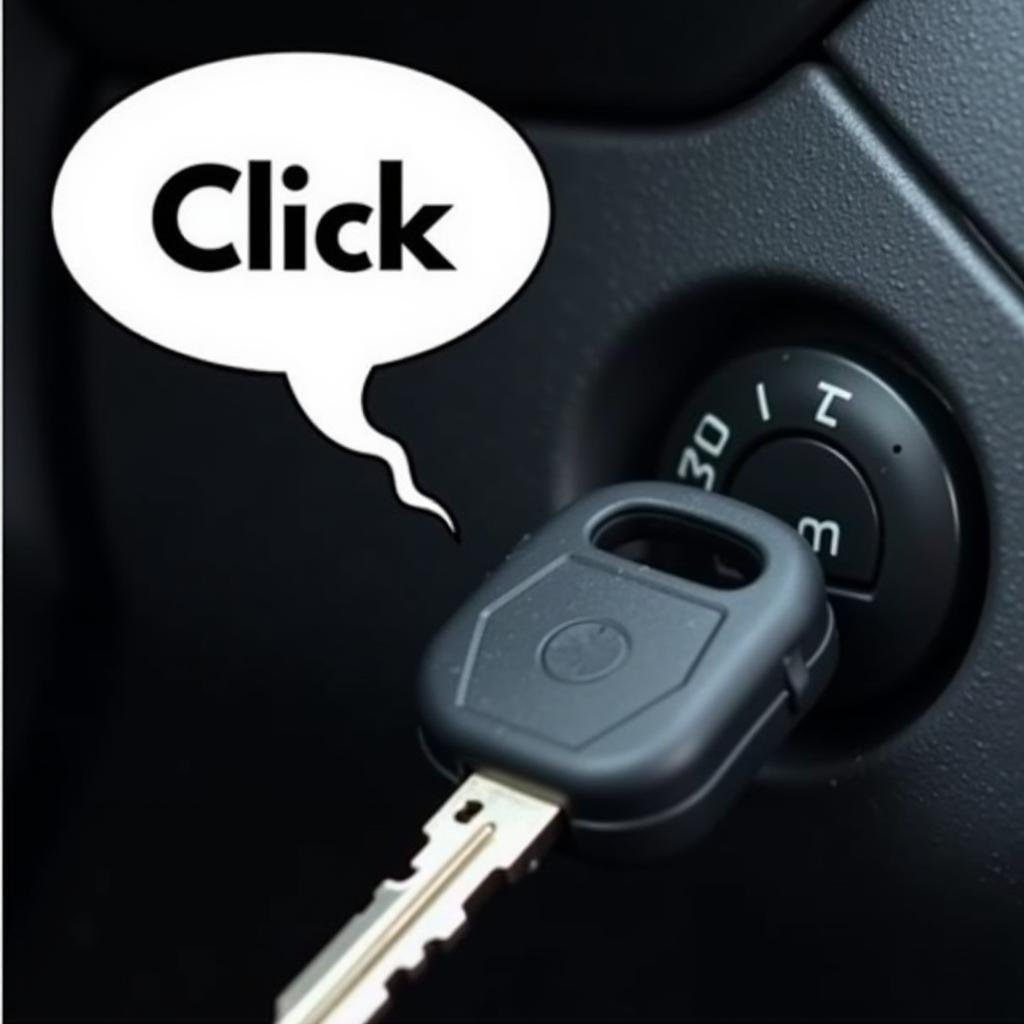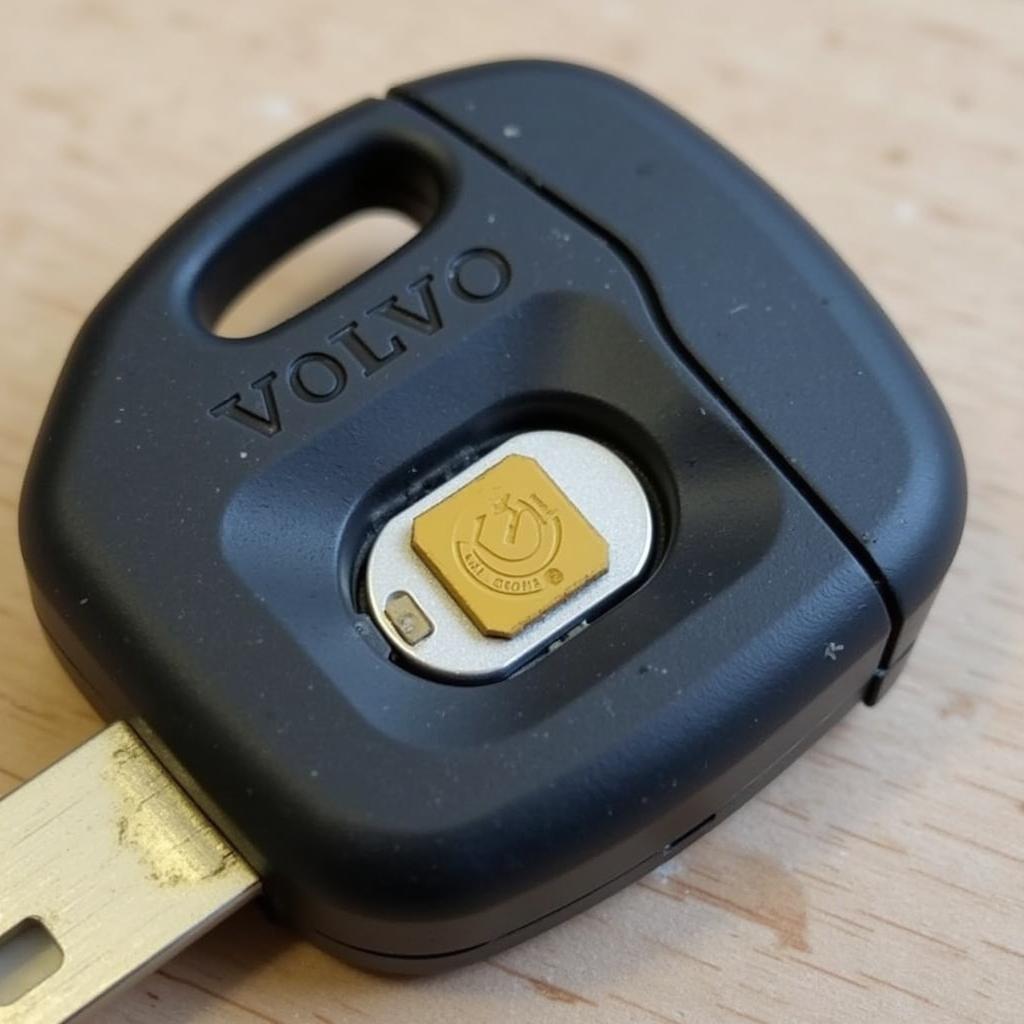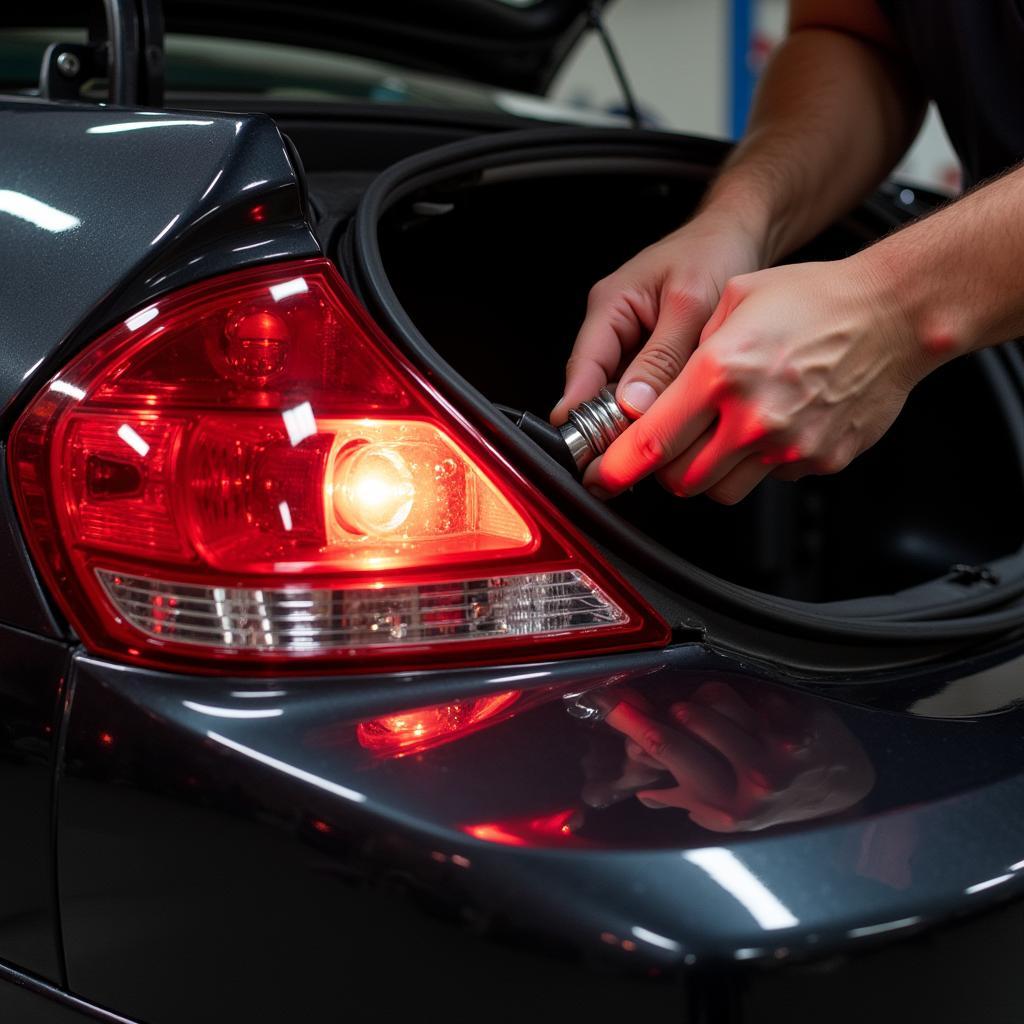A dead car battery is a frustrating experience, but recognizing the car battery going bad symptoms can save you time, money, and a lot of hassle. This guide covers everything you need to know about identifying a failing battery, from the subtle signs to the more obvious indicators.
Recognizing the Early Car Battery Going Bad Symptoms
Often, a dying battery will give you subtle hints before it completely fails. Catching these early car battery going bad symptoms can prevent you from being stranded.
- Slow Engine Crank: This is one of the most common early signs. If your engine cranks slowly when you turn the key, it could indicate a weakened battery struggling to provide enough power to start the car.
- Dim Headlights: Notice your headlights dimming, especially when idling or using other electrical components like the radio? This suggests your battery isn’t holding a charge effectively.
- Flickering Interior Lights: Similar to dim headlights, flickering interior lights can signify a failing battery.
- Electrical Malfunctions: Experiencing issues with power windows, radio, or other electrical accessories? A weak battery might be the culprit.
More Obvious Car Battery Going Bad Symptoms
As the battery deteriorates further, the symptoms become more pronounced. These signs indicate the battery is nearing the end of its life and requires immediate attention.
- Clicking Sound When Turning the Key: That dreaded clicking sound means your battery has enough power to engage the starter solenoid but not enough to crank the engine.
- Needing to Jump-Start Frequently: If you find yourself relying on jump-starts regularly, your battery is definitely failing and needs replacing.
- Swollen Battery Case: Extreme temperatures can cause the battery case to swell or crack. This is a serious safety hazard and requires immediate replacement.
- Strong Rotten Egg Smell: A sulfuric smell near the battery indicates a leak and potential damage.
 Clicking Sound When Starting Car
Clicking Sound When Starting Car
How to Test for Car Battery Going Bad Symptoms
While the symptoms mentioned above are good indicators, a battery test will confirm the diagnosis.
- Visual Inspection: Look for cracks, leaks, or swelling in the battery case.
- Battery Tester: Use a multimeter or a dedicated battery tester to measure the voltage. A healthy battery should read around 12.6 volts.
- Load Test: A load test checks the battery’s performance under stress, simulating engine starting. This test is performed by a mechanic or auto parts store.
Why is my car battery going bad so fast?
Several factors can contribute to premature battery failure. These include:
- Extreme Temperatures: Both hot and cold weather can significantly shorten a battery’s lifespan.
- Short Trips: Frequent short trips prevent the battery from fully recharging.
- Old Age: Batteries have a limited lifespan, typically 3-5 years.
- Parasitic Drain: Electrical components drawing power even when the car is off can drain the battery.
Conclusion
Recognizing car battery going bad symptoms is crucial for avoiding inconvenient breakdowns. By paying attention to these signs and performing regular checks, you can ensure your battery remains in good condition and replace it proactively when necessary. Don’t wait until you’re stranded – take action today!
FAQ
- How long does a car battery last? Typically, 3-5 years, but various factors can influence this.
- Can I jump-start a completely dead battery? You can try, but a completely dead battery might not accept a charge.
- How much does a new car battery cost? Prices vary depending on the type and brand, but expect to pay between $50 and $200.
- What should I do if my car battery is leaking? Do not touch the battery. Contact a mechanic or auto parts store for proper disposal and replacement.
- Can I replace a car battery myself? Yes, but it’s essential to follow safety precautions and consult your car’s owner’s manual.
- How can I prevent my car battery from dying prematurely? Avoid short trips, limit electrical usage when the car is off, and have your battery tested regularly.
- What are the signs of a bad alternator? Dimming lights, difficulty starting, and a whining sound from the engine can indicate alternator problems.


